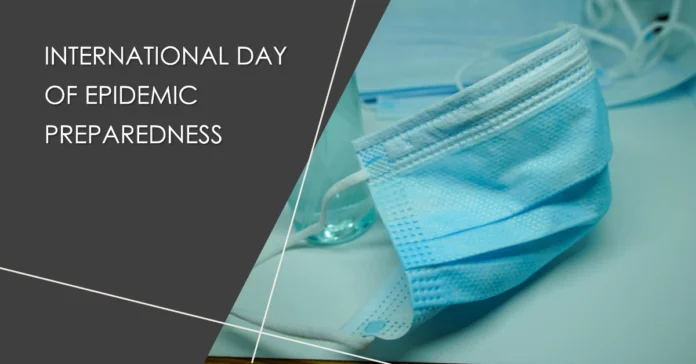The International Day of Epidemic Preparedness was established by the United Nations General Assembly on December 7, 2020. The day was created in response to the COVID-19 pandemic, which exposed the vulnerabilities of countries and communities around the world to infectious disease outbreaks. The date of December 27 was chosen to coincide with the birthdate of Dr. Louis Pasteur, a French biologist and chemist who made significant contributions to the prevention of infectious diseases through vaccination and the development of the germ theory of disease.
The International Day of Epidemic Preparedness aims to achieve the following objectives:
1. Raise awareness: The day seeks to raise awareness about the importance of preparing for and responding to epidemics and pandemics. It emphasizes the need for investment in public health infrastructure, research, and early warning systems to prevent, detect, and control infectious disease outbreaks.
2. Strengthen global cooperation: The day calls for increased international cooperation and collaboration to develop and implement effective strategies for epidemic preparedness and response. This includes sharing of information, resources, and expertise to help countries build their capacity to prevent, detect, and respond to infectious disease outbreaks.
3. Promote innovation: The day encourages the development of new technologies, therapies, and vaccines to prevent and control infectious diseases. It highlights the importance of scientific research and innovation in addressing global health challenges.
4. Support community engagement: The day advocates for the involvement of communities in epidemic preparedness efforts, recognizing that local knowledge, resources, and capacities play a crucial role in preventing and controlling infectious disease outbreaks.
Various activities and events may be organized on the International Day of Epidemic Preparedness, including:
• Educational programs and workshops: Governments, international organizations, and civil society groups may organize educational programs and workshops to raise awareness about the importance of epidemic preparedness and the need for investment in public health infrastructure and research.
• Public awareness campaigns: Media campaigns may be launched to inform the public about the risks of infectious diseases and the steps they can take to protect themselves and their communities.
• Conferences and seminars: Experts from various fields may gather to discuss and share best practices and lessons learned in epidemic preparedness and response.
• Community events: Local organizations may host events to engage community members in discussions about epidemic preparedness and the importance of community involvement in preventing and controlling infectious disease outbreaks.
The International Day of Epidemic Preparedness serves as a reminder of the importance of investing in public health infrastructure, research, and early warning systems to prevent and control infectious disease outbreaks. By raising awareness and promoting global cooperation, the day aims to help countries and communities better prepare for and respond to epidemics and pandemics, protecting lives and livelihoods worldwide.
Hidden Object Games
Join us as we observe the International Day of Epidemic Preparedness with our Hidden Object Game. Through immersive scenes, we highlight the importance of being prepared for epidemics and appreciate the tireless efforts of healthcare workers worldwide.
Features:
- Epidemic Preparedness-themed hidden objects
- Reflective and engaging gameplay
- Suitable for all ages
- Promotes awareness about global health issues
Remember, preparedness is key. Like, share, and subscribe for more thoughtful and engaging hidden object games.
